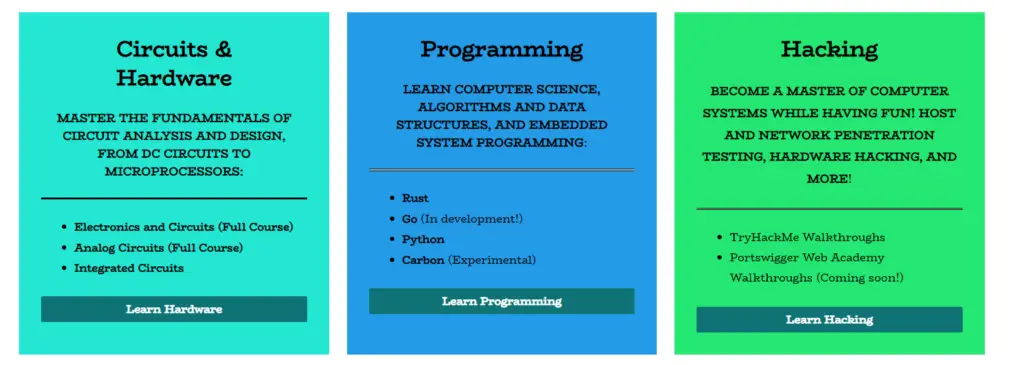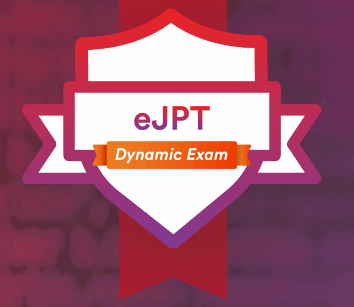Updates for March 2023
There was a lot going on at Electronics Reference in the month of March. My schedule has been so packed that I am getting this post out almost three weeks late!
Site Wide Updates
I am tinkering with different designs for the home page and also had to work through some weird WordPress issues.
One of my goals for this year are to improve the overall design, feel, and flow of the website in general. I am a pretty terrible designer by default. I tried to work with a few professional WordPress designers, but the improvements that they recommend have generally involved the use of additional plugins or other things that would slow the website down. I’d prefer a simpler, faster looking website, especially as it is supported by ads, which already slow down every page. So I’ve been experimenting with different things on the home page and improving the header and footer menus on my own. These types of design changes are difficult for me to choose and assess, but I think it’s been moving in the right direction.
In addition to the home page, I’ve been working on designing the site structure and flow, and building out great landing pages that support the structure. For now at least, I’ve settled on three domains that everything will be grouped into:
I want to focus on creating better and more customized experiences for visitors in each of these three areas. I’ve adjusted the home page to better reflect these areas:

OK, it’s still pretty ugly, But I’m working on it 😉
Rust Course Updates

March saw a good amount of improvement for the course on Rust.
I started using the main landing page (linked above) as a platform for a long (huge!) single page tutorial on Rust, which I think will be highly beneficial for those new to the language or transitioning from another language.
I also added the following tutorials:
- Lifetimes
- Traits
- Drop Trait
- Generics
- Project Management
- Modules
- Nesting Modules
- Functions in Modules
- Crates
- Packages
- Error Handling
- Error handling with panic!
I also started working towards a course for data structures and algorithms, but I will be holding off on its development for a while (probably a few months). This is due several factors, including shortness of personal time as I have been plugging away at cybersecurity certifications.
Unfortunately another factor is popularity: I’ve been working on Rust content to the exclusion of many other things for several months, but it has yet to become popular. Even to myself, it’s hard to continue justifying a high level of effort for something that few of my visitors seem to be enjoying. Hopefully this changes, because I love working on Rust!
Introducing the Go Language Project

In the long term, I see this website as specializing in several programming languages, and providing the best content online for those languages.
My current idea is that I want to develop comprehensive courses on: (1) A great multi-purpose, safe, but difficult language (Rust); (2) Assembly – I think this will tie in very well to my content on hacking, and will also provide a bridge across the website from hacking, to programming, to hardware. But admittedly, Assembly isn’t an every day language, and Rust is mostly deployed for systems programming (at least for now). Which brings me to language (3) – an every-day, easy to use language with many of the same benefits as language # 1. I think Go is a great candidate for this. It’s popular, easier than Rust, and you can quickly write scripts with it. In terms of ease of use, Go is arguably closer to a high level language like Rust. It also has many of the same benefits and compiles quickly, making it great for applications where compile time is a primary factor.
To this end, I’ve started developing a course in Go. I have only posted a few tutorials so far:
Comments
Variables
Constants
Data Types
Booleans
Strings
Integers
Floats
Complex Numbers
Arrays
Personal Updates
When I (whoami) started this project a few years ago, I considered myself to primarily be a Materials Engineer with a love of electronics, programming, and all things tech.
Over time, I’ve truly come to love the world of IT and cybersecurity in particular. This originally came about because I started doing CTFs for fun and began posting my notes to TryHackMe boxes about six months after getting hooked on them.
All of this was unexpected; it began because I took a variety of courses in IT to help me build, secure, and administer this website. Then I started working on CTFs because they seemed to be a great way of learning IT in a gamified atmosphere. I also thought that learning to attack a website would help me secure my own.
What I didn’t expect was that I would totally fall in love with the world of offensive cybersecurity. At some point over the last year, I began to pivot in my plans regarding my own long-term career. To this end, I have been preparing daily to earn some offensive cybersecurity certifications. I think they will help me professionally as well as provide me with motivation to make the fastest possible progress.
Last week, I took the first major step toward this by earning my eJPT!

My INE membership also includes a cloud certification (the ICCA), so I will be completing that next. But after that, I will be looking to obtain more advanced certifications in offensive cybersecurity. I am not sure about the order I will complete them in, but I would like to go for PNPT, CRTP, CRTO, and OSCP in the next year or so.
In order to synch my personal work and the work I publish on this website, I will be posting my notes here as well and also the write-ups to related boxes on TryHackMe and other platforms. I started with some of my notes on penetration testing, but this is very much a work in progress.
What’s Next
I’m at a bit of a crossroads in terms of what’s next for Electronics Reference. Of course, I will continue to post as much as possible. But I also want to earn some certifications as quickly as possible, meaning that I will have even less time to work on this website.
I think my approach for the next few months will be to develop each category a bit, ideally one article a week for the major topics. Once I get through some of the certifications above, I will give myself more time to work on this website again.
For now, I am going to try to focus on synchronizing CTF writeups with the topics I am covering, in order to provide the best content while enhancing my own learning. For example when I go for the RTCO, I will be posting my notes on red teaming while completing red team boxes and posting write-ups to relevant THM boxes. I think that this approach will benefit my awesome visitors because I will mentally be immersed in the topics that I will be writing about.
Thanks to all my visitors – this project wouldn’t be possible without you. Have a great month building, breaking, thinking and tinkering!
As always, you can reach out to me directly at [email protected]. I hope to hear from you!